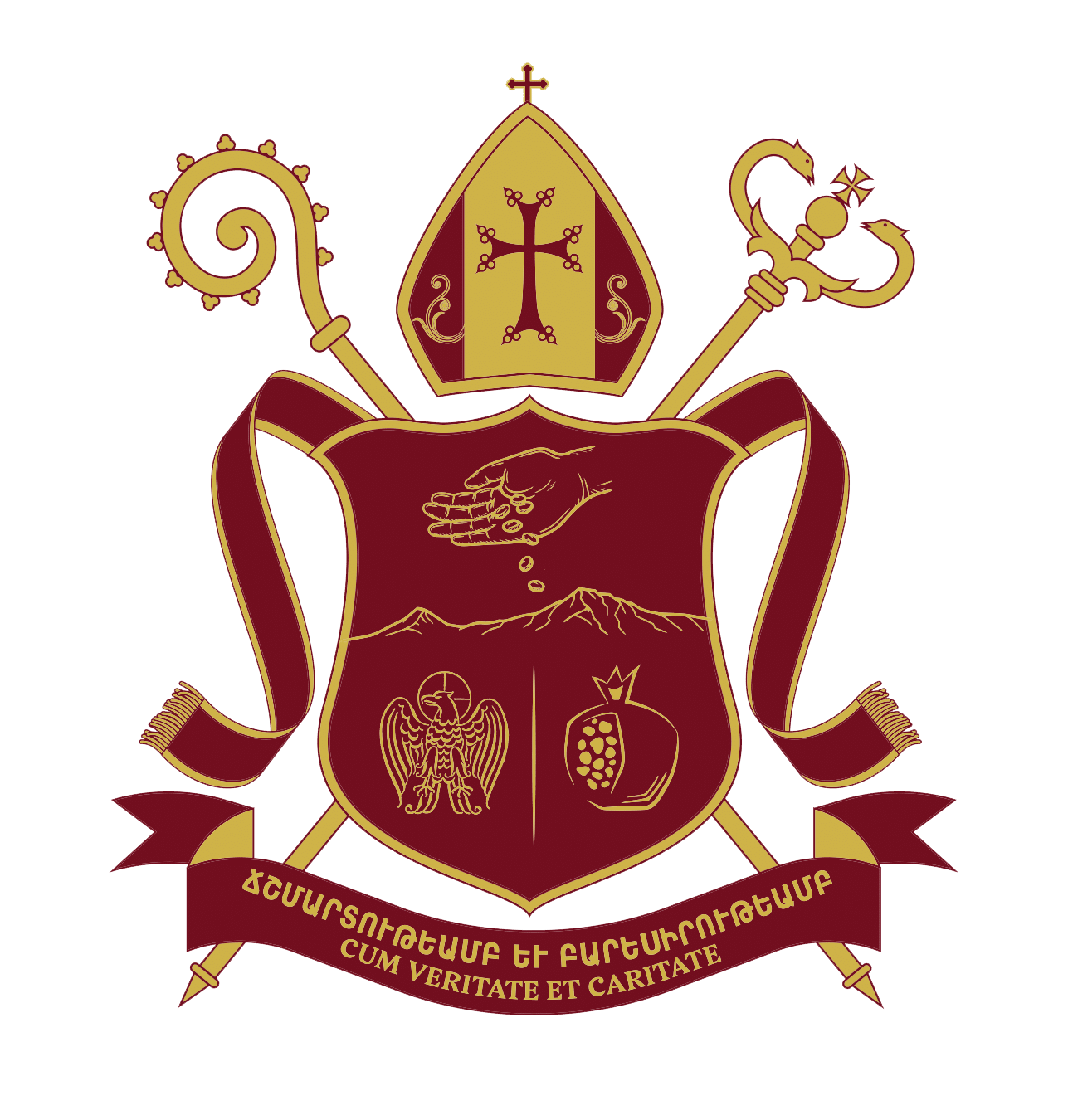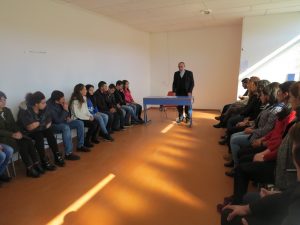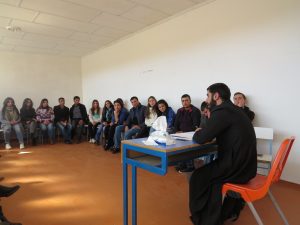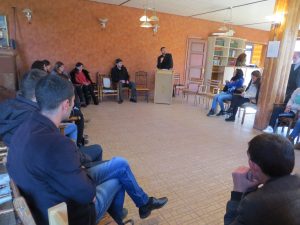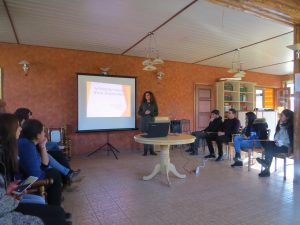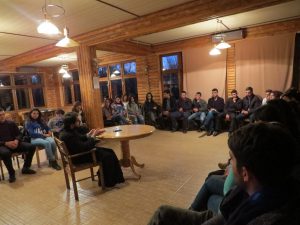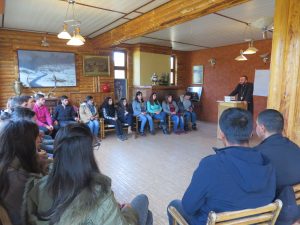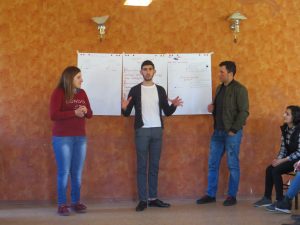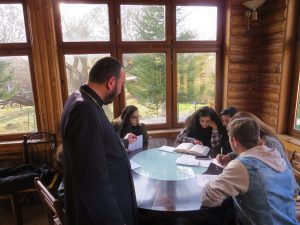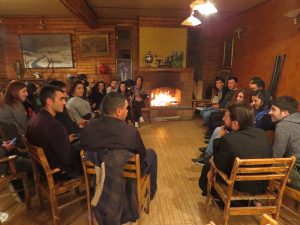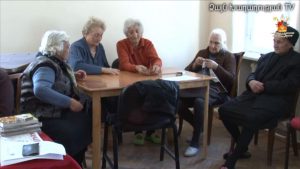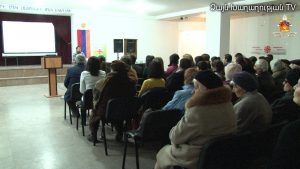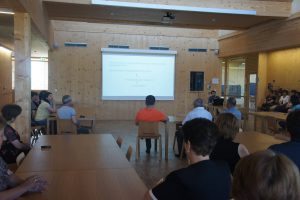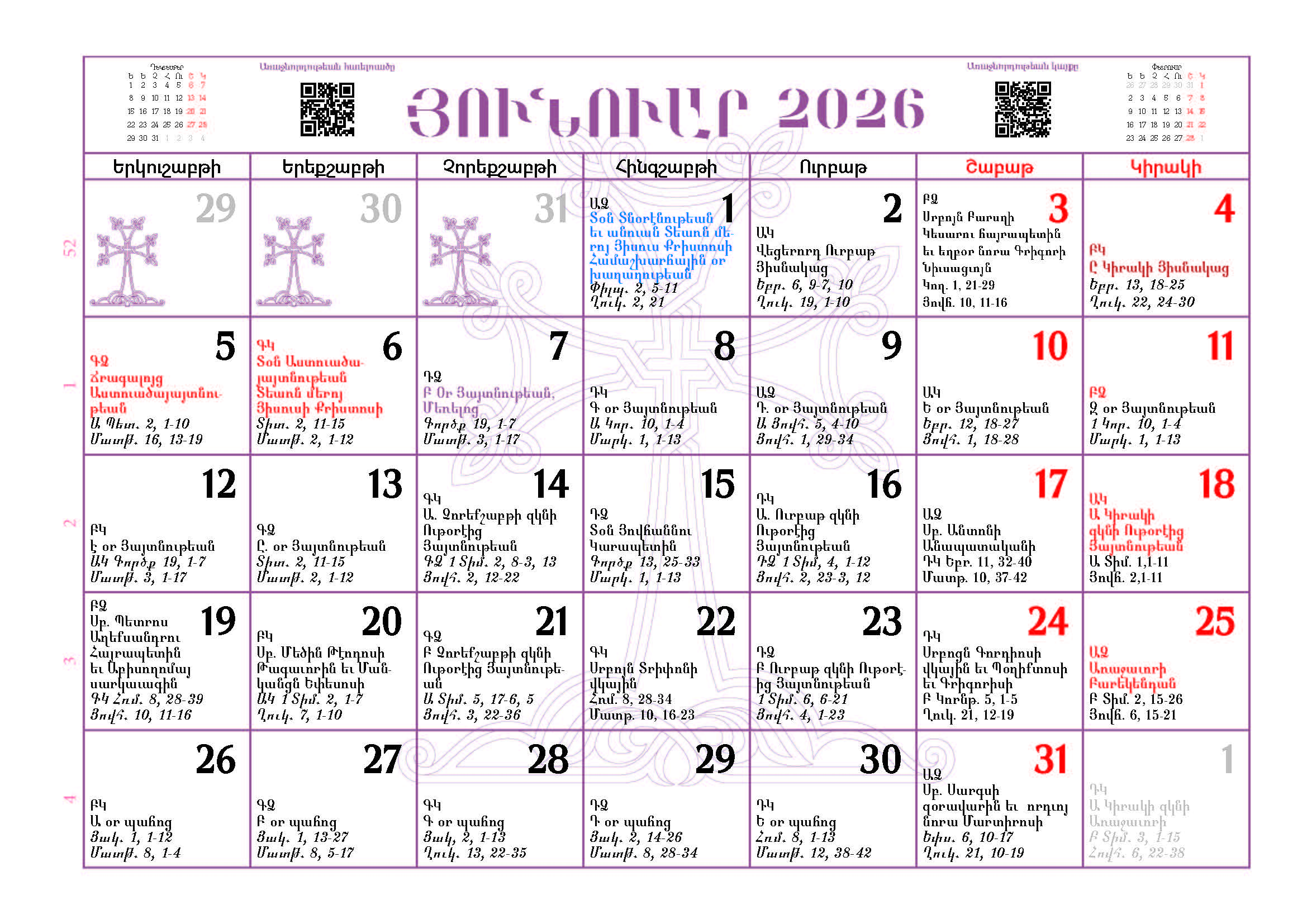- Youth Development through Integral Approach, from I to We
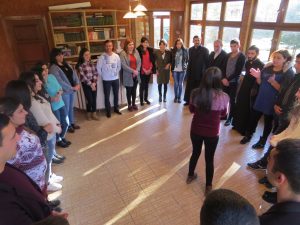
It is important to focus on what can I do for the holiness of the Church and how can I be holy, and not on the imperfections of others.
A very important concept was emphasized during the XV Ordinary General Assembly of the Synod of Bishops held in Rome from October 3-25, 2018. According to this concept it is necessary to work with young people accompanying them in every situation, developing a lively encounter with them, focusing their attention on the holiness of the Church and the Holy Sacraments, as well as leading them to the closeness with Christ with the aim of helping young people to overcome those disappointments that they experience, seeing the vicious phenomena in the Church which are the result of the clericalism, the isolation of some of the clergy, the establishment of the “elite groups”, the lack of real human contacts and the misunderstanding of the mission of evangelization.
The Synod Fathers, in their letter addressed to the young people, said: “Our weaknesses should not deter you; our frailties and sins must not be an obstacle for your trust. The Church is your mother; she does not abandon you…”
The meeting organized on 3-4 November, 2018 at “Cardinal Aghajanian” Armenian Catholic Youth Development Centre, was inspired with the same idea. The themes of the meeting were the volunteerism and the full participation of young people in community life through both spiritual and public aspects, according to the Catholic Church doctrine on integral human development.
The Armenian Catholic young people have no right to be passive in community life, especially if they have a spiritual dialogue with our Lord Jesus Christ: “the eternally young Christ” (cf. Letter from Synod Fathers to Young People, October 28, 2018). The spiritual fervour and the devotion to Jesus must empower young people to take an active part in the development of their community, in particular, come out with their own initiatives with a determination and creativeness to realize them, also expressing readiness to work jointly with their peers, with humility and openness towards the other. Fr. Grigor Mkrtchyan, the Director of “Cardinal Aghajanian” Centre, put the emphasis on these characteristics in his welcoming speech for participants.
What does the volunteerism mean in the Church and in the fabric of public relations? What does it have in common with the Gospel? These were the main themes of Rev. Fr. Narek Mnoyan’s speech and discussion. He greeted all participants with St. Paul’s words of thanksgiving: “We always thank God for all of you and continually mention you in our prayers” (1 Thessalonians 1:2). Fr. Narek said: “Dear young people, I would like to assure that you are always in my fervent and everlasting prayers, as you are before the eyes of my heart in the moments of joy and difficulty. You are the present and the future of our Church, community and country. The whole Christian world gratefully recognizes the eminent and sustained contribution of young people and their unshaken devotion to create the Body of Christ. The witnessing of all this is indeed the recent Synod of Bishops on Young People with the presidency of His Holiness Pope Francis, held at the Holy See. His Holiness conveyed the assurance of his affection for the young people, who are faithful to Christ and His Holy Church in spite of any temptation and difficulty.”
Fr. Sahak Aghekyan spoke on the theme of “The volunteer work according to Pope John Paul II”, presenting the teaching of the “Pope of Youth”- St. John Paul II, which has served as the basis for the work strategy with the young people of the Catholic Church.
A conversation was organized by Siranush Minasyan about the participation of young people, drawing on one of the fundamental principles of the Catholic Church Social Teaching: the participation. She presented her suggestions on how to ensure the participation in the community life. She explained the principles of participation according to the social science approach:
1.Strengthening;
2.Targeted involvement;
3.Inclusiveness.
Siranush noted the social isolation and the inequality of opportunities, the lack of interest in political and social problems, the gender restrictions in public structures, as well as the lack of information, as challenges to the participation. As she explained, the forms of young people participation can be traditional and non-traditional. The traditional forms are: the social work; the volunteer work; the youth network formation, whereas, the non-traditional forms are: the forums for discussions; the signature collection; the rallies; the use of the Internet in order to influence the collection of information, the expression of opinions and the decision-making. She emphasized the importance to give the opportunity to every young person to have the participation experience.
Fr. Hovsep Galstyan had a discussion with the young people on the bad habits related with the celebration of Halloween, the eve of All Saints’ Day (according to Latin rite). The reasons of these bad habits, their psychological basis and false relation to religion, the manipulation of information, as well as the forms of cultural destructive politics were discussed. The young people presented their views. The priest emphasized the fundamental principle of Christianity according to which we should imitate the image of our Lord Jesus Christ and radically renounce everything which can have any relation to the evil one. Then they prayed the Holy Rosary asking the grace of the Blessed Virgin Mary in order to deliver them from the evil temptations, to strengthen the belief of young people calling them to be holy in their everyday life and be fervent in their prayers.
The next day, the participants took part in a workshop with an intensive discussion on the subject of small project initiatives that can be implemented in their communities. They presented 5 initiatives:
1.assistance to needy families in their communities and renovation of windows of their houses;
2.organization of the garbage collection in village;
3.organization of development courses for church choir;
4.Christmas tree installation;
5.assistance to the preparation of lessons for schoolchildren on a voluntary basis.
The two of the aforementioned initiatives will be chosen and the young initiators will receive a small donation for the implementation of their project.
Most Rev. Fr. Karnik Hovsepian, the President of the Armenian Catholic Youth Association in Armenia, Georgia, Russia and Eastern Europe, spoke about the role of the Bible in the life of the young people. His speech was inspired by one of the homilies of His Holiness Pope Francis, where the Holy Father emphasizes: “No other book has the power to transform the human life than the Bible.” Then, Rev. Fr. Karnik Hovsepian carefully explained the significance of the Bible and exhorted them to include this book in their daily readings. Reverend father emphasized that the Holy Scripture helps us to remember that the Word of God must be the leading light in our everyday life. The Bible helps to see the truth and to live according to that truth, staying away from the forgery and false notions.
Fr. Hovsep Galstian
Translated by Hranush Sargsyan
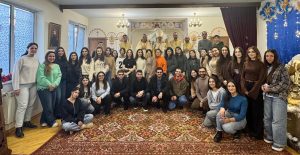 Founding General Assembly of the Armenian Catholic Youth Union
Founding General Assembly of the Armenian Catholic Youth Union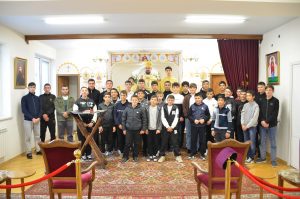 Trainings for Ministrants of Holy Liturgy
Trainings for Ministrants of Holy Liturgy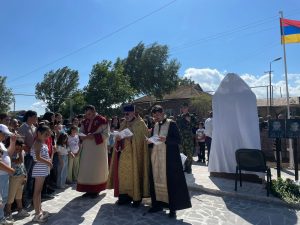 A Cross Stone Dedicated to the Heroes of Artsakh War Was Anointed in Mets Sepasar
A Cross Stone Dedicated to the Heroes of Artsakh War Was Anointed in Mets Sepasar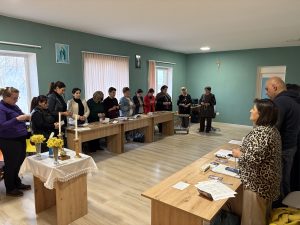 Days of Retreat. Holy Eucharist is the Missionary Pivot of the Legion of Mary
Days of Retreat. Holy Eucharist is the Missionary Pivot of the Legion of Mary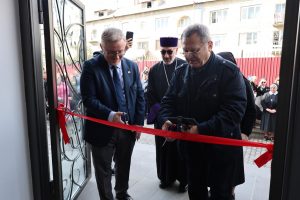 Another Cradle of Charity and Ministry: Inauguration of Diramayr Hayastani Youth Center
Another Cradle of Charity and Ministry: Inauguration of Diramayr Hayastani Youth Center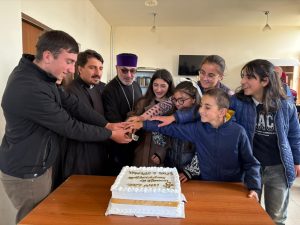 His Excellency Kevork Archbishop Noradounguian served a Holy Mass in St. Nshan church in Bavra
His Excellency Kevork Archbishop Noradounguian served a Holy Mass in St. Nshan church in Bavra
